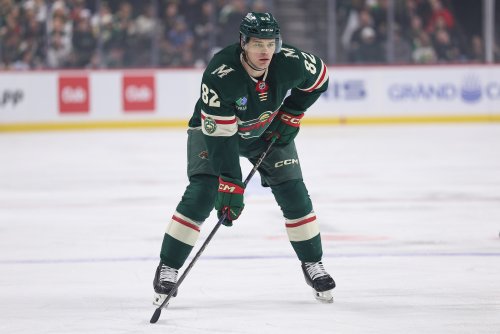
After a 32 day stalemate, the NHLPA has finally put together and delivered their CBA Proposal to the NHL Owners and Commissioner Gary Bettman. Obviously, this is a huge step in the negotiation process. Prior to this delivery, communication between the Union and the Owners had come to a standstill. Now, both sides are back at the table. With one month to go, this is a huge step for both sides.
Make the jump and we'll take a look at the "sizable gulf" that seems to have gotten a little bit smaller today.
The Positives:1) The NHLPA and the Owners are back at the table. Between the Owners' proposal 32 days ago and the NHLPA's counter proposal, talks were non-existent. While Fehr and Bettman were in communication, the two sides had not gotten down to actual negotiations. The Owners were waiting for the NHLPA to make their counter offer, and until the offer rolled in, there wasn't much either side could do. Now with the players' proposal in, the two sides can start working towards the middle. In fact, the Union and Owners are meeting Wednesday, which wasn't scheduled until after the NHLPA counter-proposal came in.
2) The NHLPA did not go off the deep end like the Owners. The players will keep the hard cap, which the owners want. The players have also agreed to a closer profit share, as well as a salary giveback ($465 million) over the course of three years. In addition, the NHLPA and the Owners are close to agreeing on a number for revenue sharing. The owners are at $190 million, while the players are at $240 million. Both sides are in the same ballpark, so now working it to an agreeable number becomes easier.
3) The NHLPA is siding with the small-market teams. The Union is seeking a more aggressive approach to helping out the small-market squads. By doing so, the Union is making friends with a good portion of the owners while ensuring that the health of these markets is stable moving forward.
4) The NHLPA is at least negotiating in good faith. While the NHLPA proposal did not address some of the big points offered by the Owners (more RFA years, more years on entry-level deals, no salary arbitration), they didn't deliver an over-the-top proposal that would be automatically shot down by the Owners. Granted, the Owners are going to say no, but multiple sources are saying that both sides came out feeling better, and that the NHL Owners are "intrigued" by the offer.
The Negatives:
1) There's still a big gap. The NHLPA fought tooth-and-nail to get salary arbitration, and there's no way they just give it back up. The Owners don't like the idea of turning over salary numbers to "judges". It takes away from some of the RFA bargaining power from the Owners. If an RFA doesn't sign the contract that the Owners put forward, they get the lovely option of sitting out an entire NHL season.
Like I mentioned above, the NHLPA also did not address the RFA extension time and increase of entry-level deal years. Presumably, the Union wants to keep things as the status quo. If anything, the Union would love to see a reduction of RFA years. Owners want more control over their draft picks, while the Players and the Union want to see guys hit the UFA market sooner. Just about every other major sport has seen major changes with entry-level deals (rookie wage scaleback in the NFL, the NBA requiring that draft-eligible players be at least 19, and baseball with all their RFA rules). The Owners are trying to get while the getting is good.
2) There's only one month left to get this done before games start falling off the schedule. While losing pre-season games isn't the end of the world, the games are important for young guys, new coaches, and teams with major makeovers. The NFL had some early struggles because of the loss of their offseason workouts and pre-season games. It's very possible that teams are out of sync to being the season if training camps are delayed.
3) Quite possibly the biggest negative with this entire negotiation is the fact that the NHL season-ending lockout is still fresh in many peoples' minds. How much good will is being lost because of these delayed negotiations. It's not like the end of the CBA just snuck up and caught both sides by surprise. The Union's refusal to realign didn't start the negotiations off right, and with one month to go, the negativity and pessimism hang over every fan's head. Fans and observers see this going into a lockout because they can still remember the 2004-2005 lockout. Even if both sides can come together and get the season started on time, it's possible the casual fan had already walked away.
Despite the gaps between the two sides, at least the NHLPA has submitted their proposal to the Owners, and now the real negotiations can start. There's more reason to be optimistic now than their was two days ago.
What say you, oh Summer Wilderness readers? Are you encouraged by this, still pessimistic, or did you stop caring months ago?
Think you could write a story like this? Hockey Wilderness wants you to develop your voice, find an audience, and we'll pay you to do it. Just fill out this form.







Recommended Comments
There are no comments to display.
Join the conversation
You can post now and register later. If you have an account, sign in now to post with your account.
Note: Your post will require moderator approval before it will be visible.